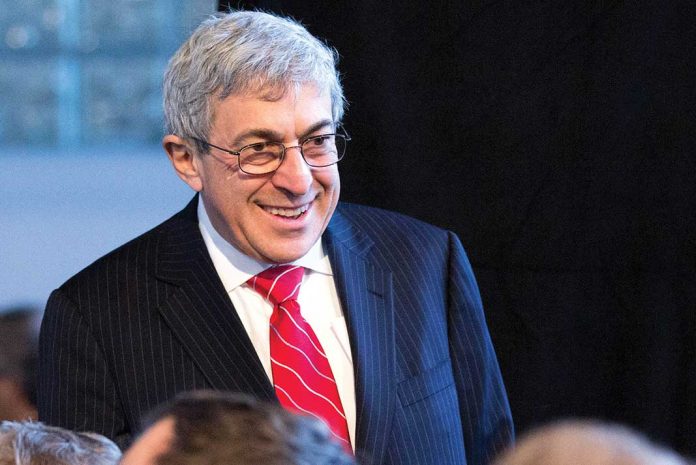Being recognised as CEO of the Year — an honour I accepted on behalf of our 21 000 Team Schein Members around the world — has been one of the most humbling experiences of my life,” said Stanley M. Bergman after being selected as ‘2017 CEO of the Year’ by Chief Executive’s Magazine, an honour bestowed upon an outstanding corporate leader, nominated and selected by peer CEOs.
Stanley Bergman has served as CEO and Chairman of the Board of Henry Schein, Inc. since 1989.
The company is the world’s largest provider of health care products and services to office-based dental, animal health and medical practitioners. It is represented in 33 countries and employs more than 21,000 people, and has headquarters in Melville, New York. It reached a record $11.6 billion in sales in 2016.
“Every great success requires a team, and at Henry Schein we have an exceptional team,” he continues. In a world crying out for principled leadership, these words from South African-born Bergman could not be more timely, or fitting.
Stanley is married to Marion, and they have two sons and four grandchildren with a fifth on the way. Based in New York, the family have maintained strong ties to their homeland and Jewish identity. Mr Bergman explains that his parents fled Nazi Germany in February 1936 for the distant shores of South Africa, and settled in the community of Port Elizabeth, where his parents’ business was a key part of the fabric of South End “one of the few remaining racially integrated communities during the waning years of apartheid. Of the many lessons I learned from the South End, one stands out: the richness of diversity and the strength of pluralism.”
He adds that “these lessons were amplified by the values of Judaism that were so central in my wife’s family and my own when we were growing up. My parents instilled the concept of ‘tikkun olam’ (healing the world) in me, and my wife, Marion’s parents, did the same for her. In turn, we have worked hard to instil this value in our children.”
In addition, “participating in Habonim from an early age reinforced the values of tikkun olam, and was a strong complement to my parent’s values, while at the same time providing an excellent leadership development platform. I always remind our young managers that those who are good at ‘running a summer camp’ make excellent future leaders in business, or, in fact, any walk of life.”
“It has been truly amazing to see how the South African Jewish community has evolved over the years. says Mr Bergman. “When Marion and I were growing up in South Africa, there was a natural tension between our Jewish identity and the values of the society that surrounded us. It is remarkable to see a new, young, path-breaking generation of leaders, such as those represented by the South African Jewish Board of Deputies and Jewish student bodies, who have found a new way for Jews to contribute to the life of a fascinating and complex new South Africa. They are taking their place in a political culture that has embraced pluralism and equality as cardinal principles, engaging in an unapologetic give-and-take, as South Africans and as Jews.”
Mr Bergman says that the success of the global economy is closely linked to growth and development in the ‘new Africa.’ Business leaders in South Africa are ideally positioned to be at the forefront of unlocking Africa’s phenomenal potential while working to create a better world more broadly.
“This requires business leaders to fully embrace a responsibility to be engaged in the shaping of society. With all of the incredible advances and opportunities presented by the breathtaking technological advances of what many refer to as the ‘Fourth Industrial Revolution,’ there are many in society who are being left behind,” he adds.
“If we disregard the importance of ensuring that all members of society benefit from these advances, we risk ever mounting disenfranchisement and civil dissent, which jeopardises global stability and all democratic societies. Business leaders have an obligation to civil society to do a better job expanding the benefits of emerging technologies to all.”
“Creating a better world also requires leaders who embrace diversity. As business leaders, our organisations benefit greatly from the richness of diversity, and we have the opportunity to promote a civil dialogue among people of every political, religious, economic and cultural background. This effort to build bridges starts within our own teams, and expands to our larger communities and beyond,” he concludes.











